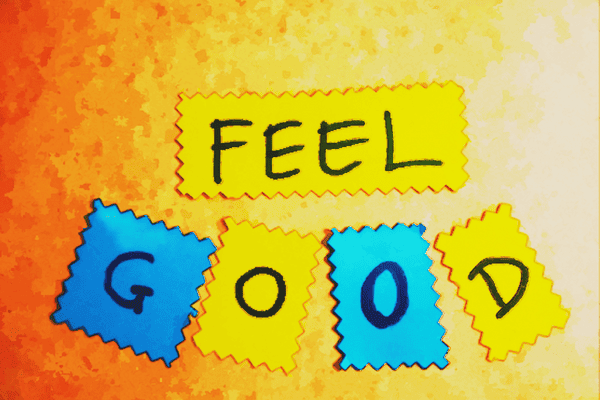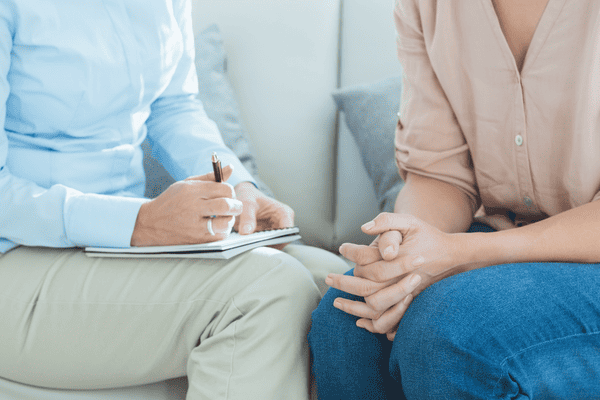Last updated on August 25th, 2025

Do you feel overly self-conscious in certain situations?
Do you want to find ways to make yourself feel more confident and secure in your own skin?
We’ve got just the solution for you! In this article, we will provide 10 helpful tips on how to feel less self-conscious.
No matter where you are or who you’re with, these tips can help you improve your emotional well-being and gain more confidence.
What is Self-Consciousness
Self-consciousness is an awareness of one’s own thoughts, feelings, and behaviors. It is an important part of self-awareness and means thinking about yourself and how you act in relation to other people.
It can involve both positive and negative evaluations of oneself.
Self-consciousness is an important part of social interaction, as it helps people take into account the thoughts, feelings, and reactions of others.
It can also lead to self-reflection and an increased understanding of oneself.
What causes self-consciousness?
Self-consciousness is an uncomfortable or awkward feeling that can happen to anyone at any age. It happens when a person is too aware of themselves and their surroundings, which makes them feel anxious and unsafe.
Self-consciousness can be caused by a variety of factors, such as childhood experiences or social comparisons.
It can also be caused by physical changes in the body, such as puberty or a significant weight gain or loss. In some cases, self-consciousness is simply a product of low self-esteem and a lack of understanding our own worth.
No matter what the cause may be, it’s important to understand how we feel and why we feel it in order to combat negative thoughts and behaviors associated with self-consciousness.
No one should have to suffer from this uncomfortable feeling that affects every aspect of life; from interpersonal relationships to job prospects
Social Anxiety
Social anxiety is a strong fear or worry that you will be judged, criticized, or rejected in a social or performance setting.
It often comes with physical signs like sweating, shakiness, and a faster heartbeat.
People who have social anxiety might try to avoid social situations or go through them in a lot of pain.
Treatment for social anxiety typically includes cognitive-behavioral therapy, medication, or a combination of both.
Social anxiety can be a debilitating condition that keeps people from living life to the fullest. It usually shows up as intense self-consciousness, fear of being judged and evaluated by other people, and fear of embarrassing oneself.
For people with social anxiety, the thought of going to social events or talking to people they don’t know can be scary.
But it doesn’t have to remain this way forever! It is possible to feel less self-conscious and live an emotionally healthy life with the help of practical strategies.
Insecurity
Insecurity is a feeling of fear, anxiety, or not being good enough that comes from not having faith in yourself or your skills. It can show up in many different ways, like fear of criticism, fear of failure, fear of being judged, worry about the future, and fear of being rejected.
15 Tips to Help You Feel Less Self-Conscious
1. Identify the source of your self-consciousness
Understand why you feel self-conscious in the first place. Is it your appearance, lack of confidence, or something else?
We all experience moments of self-consciousness at some point in our lives. Whether it’s due to your appearance, a lack of confidence, or a shy personality, feeling self-conscious can have a negative impact on your life.
It’s important to figure out what’s making you feel uncomfortable so you can take steps to get rid of it.
Once we understand the root cause, we can begin taking steps towards feeling less self-conscious.
2. Learn to take deep breaths
When we are worried about what other people think of us, we often hold our breath or take short, shallow breaths. It can make us feel lightheaded or dizzy and make us worry more.
Taking deep breaths, on the other hand, can help to counteract these effects. Deep breathing helps the blood get more oxygen and calms the body. It also helps clear the mind and focus our thoughts, which is a bonus.
Try taking a few deep breaths the next time you feel self-conscious. You might find that it makes you feel more calm and at ease.
Here are some ways to breathe deeply:
First, try to breathe slowly and deeply. Deep breathing will help calm your nerves and keep you from getting too tense.
Next, pay attention to your breath. As you inhale, count to four in your head. Count to eight as you breathe out.
Lastly, pay attention to how you breathe from your diaphragm. The muscle between the chest and the stomach is called the diaphragm.
Diaphragmatic breathing helps the lungs get more air and helps the body get more oxygen.
3. Challenge your negative thoughts
When you start to feel self-conscious, challenge the negative thoughts that are running through your head.
Start by noticing the signs of self-consciousness, like a lower sense of self-worth or a growing sense of insecurity. Once you have identified these thoughts, question whether they are true or not.
Ask yourself if there’s evidence to back up what you’re thinking, and if not, think about what other, more positive things could happen.
It takes practice to change your negative thought patterns, but in the long run, this can be a good way to feel less self-conscious.
Instead of focusing on what others may think, focus on how confident and capable you truly are!
4. Challenge negative self-talk
Negative thoughts about ourselves are destructive and can keep us from reaching our goals and living our best lives. When you’re worried about how you look, it’s easy to believe all the bad things you tell yourself.
But it’s important to question these negative thoughts and put them in a better light.
What would you tell a friend who was going through the same thing? You would probably tell them nice things and remind them of their good qualities. You can use the same method to challenge the negative things you say to yourself.
By changing the way you think, you can start to break down the things that are stopping you from being successful.
5. Fake it until you make it
Act confidently, even if you don’t feel it.
Acting confident, even if you don’t feel like it, is a great way to improve your self-confidence. It may sound counterintuitive.
In other words, by pretending you’re more confident than you really feel, your body language and behavior will change to align with those feelings of confidence.
6. Make eye contact
We can connect with others, show how we feel, and seem more confident when we make eye contact.
When we look someone in the eye, we are saying, “I see you, and I’m paying attention to you.”
In a professional setting, eye contact is very important because it helps build trust and rapport. Eye contact can also show confidence and give the impression that we are in charge.
You can also get to know someone better by making eye contact with them. When we meet someone’s gaze, we let them know we are interested in them and invite them into our personal space.
Whether you’re giving a speech or talking to a friend, making eye contact is a key part of making connections and getting your point across.
7. Focus on others
Instead of worrying about yourself, focus on the other people around you and try to make them feel comfortable.
One way of doing this is by making small talk with people you don’t know very well.
Make an effort to get out of your comfort zone and start conversations with strangers or acquaintances.
It might seem intimidating at first, but if done right, it could lead to developing new relationships and expanding your social circle.
You’ll also find that as you work on building relationships with others and providing them with emotional support, it will help reduce feelings of insecurity within yourself as well.
8. Find your support system-How To Feel Less Self-conscious
Surround yourself with people who make you feel good about yourself.
Identify the people in your life who make you feel confident, validated, and seen. These should be people you trust and look up to; they could include friends, family members, teachers, or mentors.
Spend time with them whenever possible so that their positive energy will rub off on you.
9. Practice mindfulness
Mindfulness can help you become more aware of your thoughts and feelings so you can be in control of them.
Mindfulness is an important practice for anyone looking to feel less self-conscious. It involves being aware of your thoughts and feelings, and learning how to respond in a healthy way.
Mindfulness allows you to pay more attention to the present moment and accept yourself more fully.
Once you learn the skills necessary for mindfulness, it can help you become more aware of the thoughts that are causing your self-consciousness.
By practicing mindfulness, you will notice when negative thought patterns start to take over and have a chance to address them before they spiral out of control.
This will give you a sense of control over your emotions so that fear or anxiety don’t prevent you from feeling comfortable in social situations.
Mindfulness also teaches us how to separate our emotions from what’s going on around us, so we can make decisions based on our own values instead of what other people think or expect.
10. Dress to feel good
If you look good, you’ll feel good, and a little extra confidence can take you a long way.
Remember that everyone sometimes feels bad about themselves. Keep these tips in mind when you feel self-conscious. They will help you feel more confident and less afraid and anxious. Just try your best and take it easy, and you’ll be fine.
11. Do something you’re good at
Doing something you’re good at can give you a boost in confidence and make you feel less self-conscious.
Doing something you’re good at can be a great way to help yourself feel less self-conscious.
Whether it’s something creative like painting or playing an instrument, or something more practical like fixing a car or baking, taking time to do something that you excel at can work wonders for your self-confidence.
Not only will it give you a sense of accomplishment and pride in yourself, but the process of doing something you’re already skilled at will give your mind and body a break from constantly worrying about how others perceive you.
So why not take the time today to figure out what activity makes you feel most confident?
Once you’ve identified it, get started! You’ll be surprised by how much better it feels to focus on your own abilities instead of ruminating over what other people might think of you.
12. Take care of yourself
Make sure you’re eating well, exercising, getting enough rest, and doing activities that make you feel good.
Feeling self-conscious can be overwhelming and exhausting. It’s important to take care of yourself during these times.
Eating well, exercising, getting enough rest, and engaging in activities that make you feel good are all essential steps to feeling better.
A balanced diet full of nutritious foods is key for both physical and mental health. Exercise can help your body produce endorphins, which can help boost your mood as well as release stress.
Make sure you get enough rest; aim for 7-9 hours every night so you have the energy to tackle any obstacles that come up during the day.
Lastly, don’t forget to find time for activities that make you happy – whether it’s reading a book or taking a walk outdoors, this will give you the opportunity to relax and recharge your batteries.
13. Change your body language
Sit or stand tall and smile.
Sitting or standing tall and smiling are two powerful practices that not only make you appear more confident, but also actually force your mind into a more positive mindset.
For instance, when you’re in a seated position, sit up straight with your back against the chair and keep your feet flat on the floor.
Additionally, forcing yourself to smile makes you appear warm and friendly and helps boost endorphins, which lead to improved moods.
This will put both you and those around you at ease, making it easier for everyone involved in the conversation.
14. Remember the reason you’re there
When you’re at a party, try to remember that you’re there to have fun and meet new people.
When you give a presentation, keep in mind that you have something useful to say.
Make a list of the reasons you got into this situation (for fun, to meet new people, to learn something new).
Keep this list with you and look at it when you’re feeling shy or worried about something.
Focus on each reason individually and remind yourself that you can handle the situation. Try not to overburden yourself with the reasons you’re there, and instead focus on one at a time.
15. Talk to a therapist
A therapist can help you work through the underlying causes of your self-consciousness and learn coping strategies.
Self-consciousness can be a difficult experience to live with. It can lead to feelings of low self esteem, anxiety and depression.
Fortunately, there are steps that you can take to help reduce how self-conscious you feel. One such step is to talk to a therapist about your underlying issues.
A therapist who focuses on cognitive behavioral therapy (CBT) or other types of psychotherapy can help you figure out why you feel self-conscious and help you come up with ways to deal with it.
Through regular sessions, they can help you gain insight into why you may be feeling so self-aware and provide advice on how to manage these emotions better.
By addressing the root cause of your self-consciousness, a therapist can give you the tools needed to improve your mental health and boost your confidence levels.
Conclusion-How To Feel Less Self-conscious
In conclusion, feeling less self-conscious doesn’t have to be an overwhelming task. With these 15 easy tips, you can start to break down the barriers that hold you back from feeling comfortable in your own skin and give yourself permission to be who you are.
Take it one step at a time, and remember that the more you practice, the more confident you’ll become. So don’t wait, start today! Embrace your inner beauty and let it radiate for all the world to see.
Ready to take on the challenge of discovering your true self? Unleash the potential of your inner beauty with Pheel Pretty! Discover that unbreakable self-confidence and unshakable self-esteem you always knew you had, right now. Join the journey today and start feeling beautiful!
Be unstoppable in achieving the self-confidence and esteem you deserve. Start your journey to an unbreakable self today with Pheel Pretty. Never let fear stand in your way again; it’s time to be truly empowered with the power of being you. Take control now and feel confident, inside and out.




